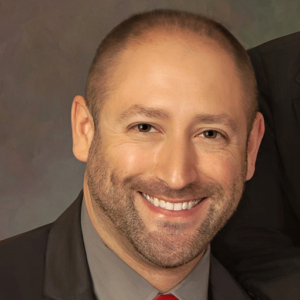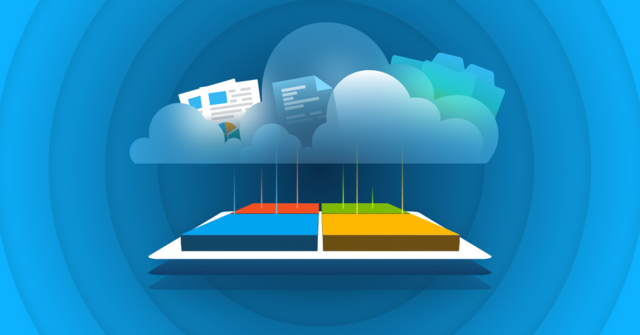
If you’re just starting podcasting or are a podcasting veteran, you probably know how important it is to have all your files available when editing an episode. While most podcasters are aware of the importance of protecting their files, it can be difficult to know where to start when backing them up. As you try to better protect your podcast files from data loss, find out about best practices to follow while backing up files.
What Is the Difference Between Archiving and Backing Up a Podcast File?
When looking for a podcast file backup solution, it helps to understand the difference between archiving and backing up your files.
Archiving refers to the process of removing files from your computer and adding them to a separate location for long-term storage. Files could be archived on external media like a USB drive or external hard drive, or online with a cloud storage provider. Typically this is done with files that you don’t need on a regular basis, but may want to keep for your records.
In contrast, backing up files refers to the process of making a copy of your files and transferring those copies to a different location. By backing up your files and storing a copy of them somewhere else (a third-party provider’s cloud, a flash drive, etc.), you can restore them in case the original files are lost or hacked.
It’s important not to assume that if you’re archiving your podcast files in another location, your files will be automatically protected from loss or damage. Regardless of whether your files live on your computer or on some other media, you always need redundancy in the form of a backup, in case something goes wrong with your external media or your cloud storage. We’ll elaborate on this some more in a bit.
4 Best Practices for Podcast File Backup
When you’re hard at work creating podcasts, the last thing you want to have to do is recreate or re-edit audio files. These four podcast file backup tips will help you make sure you won’t be slowed down if your files are lost or damaged.
1. Follow the 3-2-1 Backup Rule
One of the most important rules podcasters can follow to avoid the loss of their files before uploading them to their podcast host is the 3-2-1 backup rule. This backup rule states you should keep three copies of your files on two different media types (e.g., an external hard drive and a cloud location), with at least one of these copies stored offsite. By keeping three copies of your podcast files, you significantly reduce the risk of data loss from device failure, user error, or malware.
Backing up one file to an offsite location (e.g., an online backup provider’s cloud) ensures you’ll have a copy of your file even if your local copies are affected by a catastrophe. For example, a fire or other natural disaster could destroy both your computer and your external drive, resulting in a total loss of your files if they aren’t backed up to the cloud. It can also be useful during a ransomware attack, as you can simply remove the ransomware from your computer before restoring the files—instead of feeling like you have no choice but to pay the ransom or lose your files forever.
2. Don’t Just Keep Your Archives on a Physical Storage Device
If you want to archive old files, you might be tempted to transfer them to an external hard drive and call it good enough. While offline external hard drives do reduce the threat of cyber threats, offer fast transfer speeds, and can come with huge storage capacities, they’re not secure enough to serve as your only strategy for archiving your files. Physical drives can be stolen or damaged, raising the risk of losing your archive.
Instead of only relying on physical drives for your archive, it’s best practice to keep backups of your files on a third-party’s cloud. Though these options may come with some fees and require internet connectivity, keeping copies of your files in a third-party provider’s secure cloud significantly reduces the risk of malware, user error, or physical damage causing data loss. When searching for a cloud backup solution, check that the provider splits your files into blocks of data that are de-duplicated, compressed, and encrypted to ensure they’re secure and the upload process runs efficiently.
3. Make Sure You’re Backing Up All Your Podcast Files
When producing a podcast, you’ll likely have many audio files, and multiple versions of the same podcast before you release it in its final form. For example, you could have various files with interviews or other elements you’ll add later, the original audio file, a high-quality mix in a WAV file, and a final MP3 file you upload to your podcast host.
Since all of these files are essential for your final product, they should all be backed up. Instead of risking a crucial interview, piece of background music, or a thoroughly edited podcast file, it’s a great idea to back up every single file, not just the final version you upload to your podcast platform.
4. Backup Your Files Often
As you search for a backup solution, it’s best to pick one that automatically backs up your files, preferably every fifteen minutes. A continuous backup solution saves you from day-to-day inconveniences as well as more dramatic data loss events. Here’s a common scenario: you’re editing a file and your software crashes, causing you to lose all your progress. If you only back up your files every day or even every few hours, you’ll have to spend a great deal of time re-editing the file, wasting time, and cutting into your productivity. Not backing up your files regularly could even result in the total loss of irreplaceable audio, valuable editing time, or more.
If you pick a solution that automatically backs up your files every few minutes, you’ll be setting yourself up for greater productivity and protection against data loss accidents or disasters. By backing up your files every fifteen minutes, you can get right back to work after restoring your file without any significant data loss.
File Backup Solutions for Podcasters
Many podcasters depend on cloud-based backup solutions to help keep their podcast files safe and secure. Instead of worrying about losing your files to data loss, you can rest easy with CrashPlan, as we automatically encrypt and back up data every fifteen minutes, protect data with leading security features, and get you back to work fast with quick file recovery. Learn more about our unlimited, automatic backup solutions for creative people and creative businesses today. Sign up for our free trial here.






